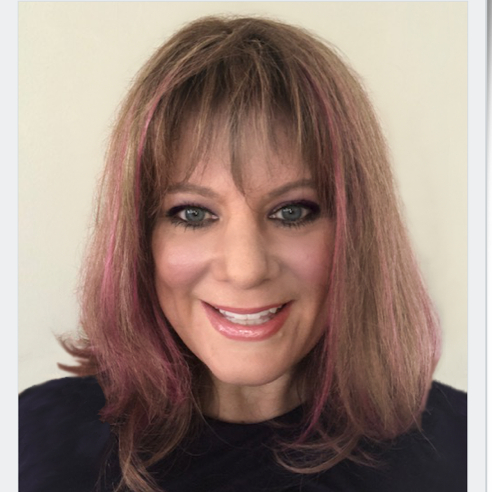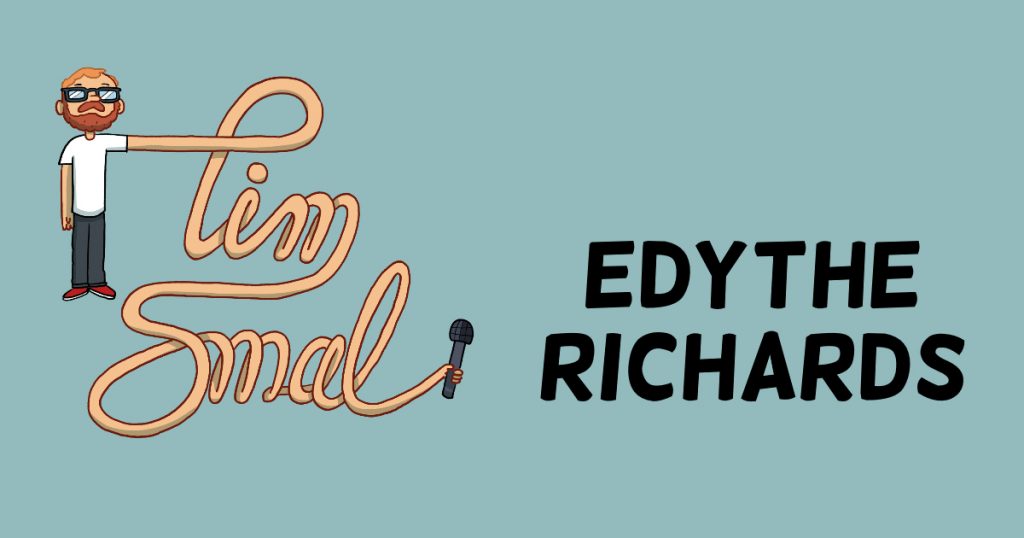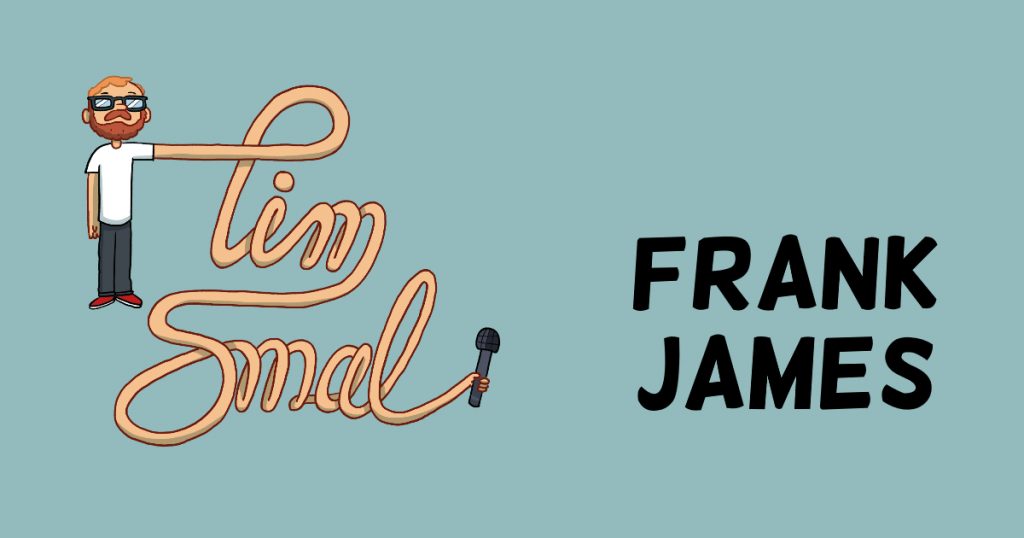August 13th, 2020

Emotional intelligence
Edythe Richards from A Top Career, talks about emotional intelligence and her work as a career counselor.
As a career counselor, Edythe has helped thousands of individuals locate and sustain meaningful employment. Edythe’s passion is working with Career Changers – helping individuals identify their ideal careers and empowering them on their paths forward. Edythe is known for being an authentic, truthful, and humorous speaker, as well as an individual of tremendous goodwill and integrity.

TRANSCRIPT – PDF
Tim Smal (host): Hi folks and welcome to the show today. My name is Tim Smal. As always, thanks for joining me on the show. My guest today is Edythe Richards. She holds a Master of Arts in Counseling (MA) and her passion is working with career changers, helping individuals identify their ideal careers and empowering them on their paths forward. She is a Global Career Development Professional (GCDF), a Certified Professional Resume Writer (CPRW), a Gallup-certified Strengths coach, a Myers-Briggs Master Practitioner (MBTI®MP) and a certified My Everything DiSC® facilitator. Edythe, welcome to the show.
Edythe Richards (guest): Hi Tim, thanks so much for having me.
[00:57] Tim Smal: I’m really excited to have you on the show today. Edythe, tell me more about your work as a career coach.
[01:06] Edythe Richards: Sure. So it’s not necessarily a career path I thought that I would be getting into, but it’s one I, sort of, found myself in, like a lot of people do. And what I really love about being a career counselor is actually working with the underdog – working with people who don’t fit neatly into one population or another. And these are the folks that I’m most passionate about helping. When I was working in the school system and at the employment centers, what I found was that there were a lot of resources available for people who were, for example, former military who were transitioning into civilian life, low-income populations, immigrant populations. There were a lot of resources and tools available for people who fell into certain populations, but the vast majority of job seekers didn’t fall into any of those populations and therefore did not have the scope of resources available to them. And I became very passionate about helping these people – many of whom are educated people with multiple degrees and just needed someone to guide them through this very confusing process of re-careering or finding the right career path for them.
[02:33] Tim Smal: I’m really interested to know more about your own personal journey in discovering this area of work. So can you tell me more about how you stumbled upon this interest or how you came upon this passion because I’m sure there’s a backstory to, essentially, arriving at this point in your life where you realized “I really want to help people. I really want to make a difference in their lives, in terms of guiding them or helping them or assisting them on their path towards a career.”
[03:08] Edythe Richards: I’m naturally a curious person and I’m very curious, in particular, about how people communicate. And when I graduated from college, I had some opportunities to travel – I had some opportunities to live abroad, travel abroad. And I just became very interested and curious about multicultural populations and diversity and just, people in general. I’ve always had an interest in psychology and helping people – motivating, empowering people and so I think that was what led me to the career path that I chose.
So I went back to school and got a master’s degree in counseling. And then found myself in the career counseling field and had a great deal of success with that for many years. And ironically, I found myself being laid off – this is about, a little over three years ago now. And it’s just one of these cases where it’s… I just found myself in the same situation as so many of the clients I had worked with. And the thing that really struck me about that experience is: when I shared it with other people I know – or even acquaintances – the number of people who rushed to my defence and rushed to help me. And it really spoke to the quality of relationships that I had built over the years. And this was something I always stressed in my work is that: a large part of your success is going to be very dependent upon those relationships that you build along your journey.
So to me, having experienced that myself… I mean, now I’m better able to truly empathize with many of the clients that I’ve helped over the years, having experienced the exact same things myself – the exact same range of emotions and frustrations… questioning yourself, questioning your abilities and how that translates into the job search. And then having been able to locate another job by practising my own advice. And I tell you, it is one of the… it’s one of the hardest things to do – to look at yourself in the mirror and see your flaws and find a way to overcome them. And I’m very fortunate that I was able to locate another position straight away.
[05:45] Tim Smal: It’s not something that you really think about when you go into the working world, that perhaps one day you might lose your job – you know, that you might be laid off. I don’t think it’s something you really think about and I’m sure for many, many people it often takes them by surprise – it catches them off guard. And so even though they might be incredibly competent, highly-skilled, have lots of experience and qualifications – individuals are not quite prepared for that moment when they realize that they’re going to lose their job. And certainly in a time that we’re in now – with the coronavirus and so forth – it must surely be a feeling or a scenario that many people all over the world can relate to.
[06:32] Edythe Richards: Definitely. And I have been… I’ve been saying this for years, that just the way the world is going, the way the economy is – people need to start looking at “the gig economy” and thinking about, you know, a side gig or something else, because these days of working for one organization for 30 years and, you know, getting a nice retirement pension and all of that – they’re slowly disappearing. So we, as individuals, have to take that onus on ourselves and think about our own well-being. And we’re in the driver’s seat now, so to speak.
[07:13] Tim Smal: And you’ve certainly done a lot of work in your own personal capacity, if I consider all the different qualifications that you’ve gained over the years. I myself am very interested in the Gallup Strengthsfinder and the Myers-Briggs framework. So you’re a great example of somebody that has developed a side hustle, an entrepreneurial effort, your own business – and I’m sure you have lots of stories to tell about what it’s been like to set that up. But could you tell the listeners a little bit more about what that journey has been like for you, in terms of getting something off the ground as, essentially, a side hustle that has turned into a business over time, where you’ve been able to attend workshops and give lectures and talks and coaching, etc. What has that journey been like for you in terms of, essentially, moving away from the standard model of the safe job, the 9-to-5 and then immersing yourself in the somewhat scary world or the unknown terrain of starting your own endeavor?
[08:20] Edythe Richards: It’s such a great question here and I’m really struggling in how to answer it because there’s so many different factors that go into this. I think the first one is that: I thought about it for many years before I actually took the plunge to go get a business license and set it up. So in that several year time frame before I actually took action, it was a lot of self-doubt and I found myself having to come to terms with those things. And then one day I just told myself “Hey, you know, I’m gonna jump off the deep end of the pool here and just get this thing started.” And then I felt like I was still – and still to a certain extent, feel this way and this is speaking of the Coronavirus pandemic and what the world is going through – there is so much of this anxiety in the world now. But, you know, when you’re acting out of fear or you’re trying to do something out of fear – make a living out of fear because you’re afraid of not having enough or losing your job or whatever it is – I’ve found I never get my best results that way.
And speaking of Gallup Strengthsfinder, Myers-Briggs and all of these things I’m familiar with – quite a lot of assessments – I use a lot of assessments in my work. And what I keep going back to is: when you are working from a place of comfort yourself, when you are who you are most naturally and comfortably and you’re using those those skills, you’re not going to be operating out of a sense of fear, you’re going to be operating out of a sense of – in emotional intelligence world we call it “self-regard” you’re going to be confident in yourself and you’re going to be working from your own abilities. And that’s where you’re going to get your best results. And that has certainly been true for me.
[10:23] Tim Smal: And one of the instruments or assessments that you use in your work is the EQ-i 2.0 instrument from Multi-Health Systems (MHS). And this is a really incredible instrument because it’s an inventory with a focus on learning competencies in the arena of emotional intelligence, or EQ for short. And from the research I’ve done, I have discovered that this is a really key area for you, in terms of the work that you’re doing, and that you believe that the key predictor of career success is emotional intelligence.
[11:00] Edythe Richards: I really, really do and I use emotional intelligence a lot in all of my work. And there’s a lot of, I think, misunderstanding of what emotional intelligence really is. And how I like to sum it up is: you’re getting your emotions to work for you, rather than against you. And that requires that you have an understanding of your own emotions. So if you don’t even have an understanding of why you’re acting the way you’re acting, or insight into your own emotional landscape – we’re really not even going to be able to make any change in this area. So if you can’t state what you’re feeling and identify the emotions, that just says you’re unaware. So the first step, to me, in building emotional intelligence and practising emotional intelligence is that self-awareness piece – just being aware of what you’re feeling, why you’re feeling that way and then what you can do to either continue on the path that you’re on, or stop and take a different path.
And then once you have this knowledge, you’re going to be better able to manage your emotions. And then you’re going to be better able to make decisions that are the right decisions for you. And you’re going to be able to communicate more effectively with people. Essentially, just that one step of being aware of what you’re putting out there into the world – what you’re feeling and what that looks like and sounds like to other people – that can be so helpful for everything that we do. And I think people underestimate that – they underestimate just taking the time to check-in with yourself, to be aware and understand what it is that’s going on with you at this particular moment.
[13:03] Tim Smal: Yeah, that’s really interesting. And there are certainly a number of individuals who have done extensive research in this area. I’m sure you’re familiar with Daniel Goleman – he’s written a number of books. And I was watching one of his videos on YouTube and he was just talking about how important EQ really is, when you are looking at the work that people are doing in corporations, because EQ (or emotional intelligence) seems to be a greater predictor of success. And it seems to be even two times more important than IQ, which is quite a bold statement that Daniel made. But I’m sure it’s not unusual to hear statements that compare the importance of EQ to IQ. And we’re certainly not going to say that one is better than the other – individuals have all kinds of different strengths and we all need to work together in the world. But I think what I’m really excited about when it comes to emotional intelligence specifically – if we look at the EQ-i model – is that: we can learn and improve our skills. So even if we have certain competencies that we’re already good at – that we have a natural affinity for – we can work on other competencies and other skills that are perhaps weaker, if you will. And so if I’m not mistaken, the idea with developing one’s emotional intelligence is that: if you can develop these competencies across-the-board and improve your EQ as a whole, you can then combine that with your skills in the IQ domain and be a lot more effective – not only in your job role – but also in your relationships and your personal life too.
[14:51] Edythe Richards: It’s so true. And to speak to what you mentioned about IQ versus EQ, I hear this argument a lot. And there is this perception out there that, you know, IQ is more important and then this one here I’ve heard that: being right is being smart. And I’m sure you – and everybody who’s tuning in too – has this experience of having worked with or been around some of the “smartest”, the quote-unquote “smartest people”, people with the highest IQ’s – the people who are very cognitively intelligent. And these people tend to fail miserably when it comes to life or to work. And, you know, back to self-awareness, it may be because they’re not aware of how they’re coming across – they may not be aware of their own biases. And we’ve heard this quote here that “smart people are very good at rationalizing things that they came to believe for ‘non-smart’ reasons.” And there’s so many different elements of emotional intelligence that this speaks to.
You know, it really goes back to – talking about biases, talking about my own bias in this regard – I believe that: in life, whether it’s personal or professional, is all about emotions. And our emotions are what drives our behavior – if we let them. But on the other side of the table is the fact that we live in a data-driven world and people do place a lot more emphasis on numbers and quantitative data than they do on emotions. And that very word “emotions” tends to be scary to a lot of people.
We aren’t really taught how to deal with our emotions when we’re growing up in school. You know, we can argue about whether emotions – emotional intelligence can be taught at school or by your parents or whomever… but emotions are essentially… they’re a basic part of us – they’re what makes us human. And it’s not going to help us to eliminate our emotions or suppress them. We need to learn to deal with them in a productive way and that’s essentially what emotional intelligence is all about here.
[17:15] Tim Smal: Wow. Yeah, you’ve certainly given us a lot to think about there. And for the listeners that perhaps haven’t looked into this model, I do encourage them to perhaps just pop onto the internet and search for the EQ-i 2.0 model, just to have a look at it – it’s a really easy to understand colorful circle. And it’s just really interesting to me how all 15 of these different emotional skills or competencies are really important for everyone. No one can really say “Well, I don’t really need to explore optimism or stress tolerance or flexibility or problem-solving, etc.” All competencies are important and so we can all do some work on ourselves. And I’m really excited about exploring it more myself and seeing which areas I can work on because, you know, there are certainly going to be areas that I can improve on where I will definitely experience, you know, change in my life and be able to work better with others and, essentially, just lead a better life.
Because there might be some blind spots – I guess, we all have those blind spots. And I think that’s what a model like this really helps us to explore. And we certainly don’t have to feel bad if we have lower scores in certain areas because, of course, there are going to be natural areas that we are strong in and that’s really, really awesome – much like in the other models like the Gallup Strengthsfinder, for example. But what I really like about this model – the EQ-i 2.0 – is that we can actually improve, we can grow, we can work on these competencies.
And I guess, you know, in terms of wrapping up the show I think that’s what I’d really like to just ask you is that: do you believe that, if an individual explores emotional intelligence and they work on these different competencies, that they ultimately will experience more success in their life? Whether they consider that success to be in terms of a business or a career or perhaps, in terms of their relationships or their general well-being – do you feel as if the more effort they put into doing this emotional intelligence work, that on the other side of that, there are going to be some rewards for them, in terms of success in life – in terms of whatever that means to them as an individual?
[19:34] Edythe Richards: Yeah, I really do. And again, it does need to be intentional and it does need to be paired with goals of what it is that you’re looking to achieve. But along those lines, it’s important to remember that it does not measure whether we are a good and ethical person or not. So that’s another misunderstanding of what emotional intelligence actually is – it doesn’t measure someone’s ability to be a good person. But by developing our emotional intelligence, [absolutely] paired with goals and intentional goal setting, it can absolutely help us to achieve more and to lead a better and happier life.
[20:17] Tim Smal: Interesting. Well, perhaps this is a good time in our discussion for you to just let the listeners know how they can reach out to you. Perhaps some of the listeners would like to take this assessment or get in touch with you. So where’s the best place for them to find you?
[20:34] Edythe Richards: Sure. I’d love for them to reach out to me on my website, which is atopcareer.com
[20:47] Tim Smal: Great. Well, it’s been really wonderful speaking with you today. I’m sure the listeners have really learned a lot from you. And before we wrap up, I just wanted to mention that, of course, you do have a number of different podcasts that the listeners can check out. So can you just tell the listeners where they can find you and how they can get hold of you and what your plans are, in terms of podcasts for the future?
[21:13] Edythe Richards: Sure. So I have a weekly podcast series called “Myers-Briggs Question Corner” and for the listeners out there tuning in, if you do have a question related to Personality Type Theory or the Myers-Briggs Type Indicator®, I would love for you to get in touch and I’d be glad to feature your question on air. I also have another series in the works right now called “EQ at Work” and this one is focusing on emotional intelligence.
[21:44] Tim Smal: Wonderful. Well, Edythe it’s been really awesome speaking with you today. I really appreciate your time and I really look forward to following your work in the future and seeing what you get up to. I’m a big fan of your podcasts and I really enjoy all the work that you do. So thanks again for joining me today on the show – I’m sure the listeners really appreciate you coming on and chatting with us. So yeah, thanks again and I look forward to speaking with you again in the future.
[22:15] Edythe Richards: Great, thanks so much, it’s really been a pleasure talking to you. And, you know, I appreciate all the kudos too – so yeah, thanks very much. Have a great rest of the day.

